The First of Its Kind in Guangdong! Breaking the Dilemma About Enforcing Environmental Civil Public-Interest Lawsuit
Editor's Note: Guangzhou Maritime Court (GZMC) has thoroughly studied and implemented Xi Jinping Thought on Ecological Civilization, Xi Jinping Thought on Rule of Law, and the guiding principles from the key speeches of General Secretary Xi Jinping on "strictly protecting the marine ecological environment, establishing and improving a regional coordinated mechanism for ecosystem protection, restoration, and pollution management based on land-sea planning." It has explored the "Court Judgment + Prosecutorial Supervision + Administrative Regulation" ecological restoration mechanism in line with the specific requirements of the CPC Guangdong Provincial Committee's "1310" Strategy and the President of the Guangdong High People's Court, Zhang Haibo, to "strive to create a Guangdong-style brand for marine ecological environment and natural resource protection." This mechanism was adopted in the first case following the enactment of the Measures for the Transfer of Ecological Environmental Damage Restoration to Government Authorities for Supervision, yielding positive results. Recently, Southern Daily published an in-depth report on this.
In March, the serene and vibrant scene of Zhubai Village, Shenwan Town, Zhongshan City, came to life. The sound of dredging machinery echoed as the newly planted dawn redwood trees on the dike began to sprout, while flocks of egrets circled above, symbolizing the thriving vitality of a beautiful rural landscape.
"The village appearance has improved, and the clear waterways have enhanced the flood control and water storage capacity, making aquaculture farmers very happy," said Li Yuanda, the First Secretary of Zhubai Village, pointing to a row of newly planted dawn redwood trees along the dike. This transformation is the result of Guangdong's first-ever marine environmental civil public-interest lawsuit executed through the "Labor Compensation + Remote Restoration" approach.
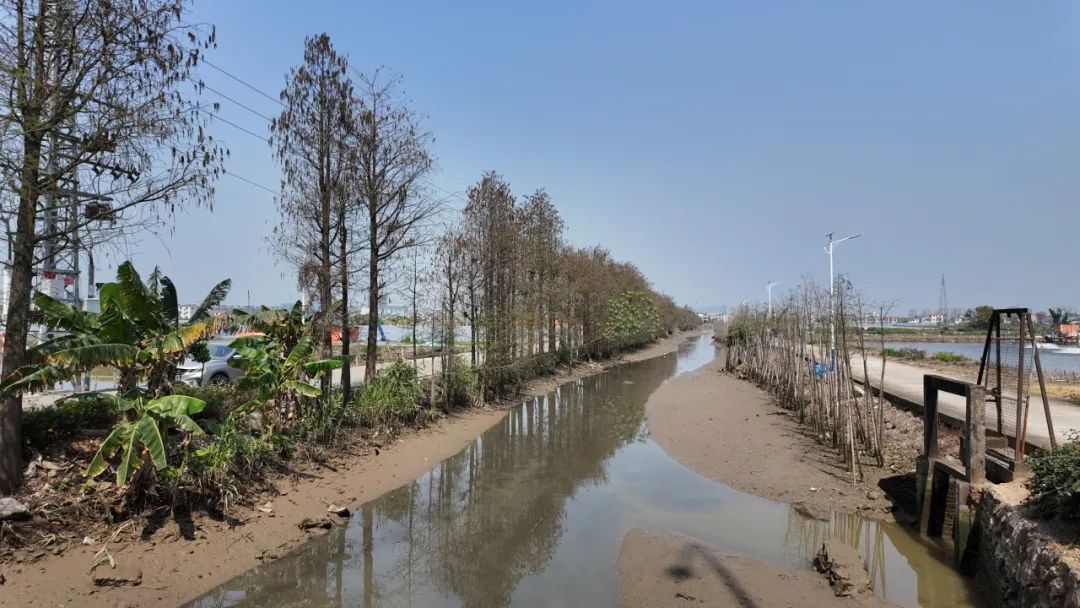
Ecological Loss Compensation Execution Dilemma? A New Solution Proposed
In September 2021, a construction materials company in Zhongshan City engaged a local earth-moving and excavation engineering company to illegally extract over 80,000 cubic meters of sand from the "Sha Zai" sandbar in the Hongqili Waterway at the mouth of the Pearl River.
The Zhongshan Marine Comprehensive Law Enforcement Team discovered the illegal activities and imposed administrative penalties on the two companies. The Zhongshan People's Procuratorate filed a civil marine public-interest lawsuit against the defendants, and GZMC ruled that the two defendants were jointly liable for compensating the ecological damage with over RMB 1.85 million and issuing an apology.
On February 24, 2025, the two defendants published a public apology in the media. However, due to mismanagement of business operations, they had no assets available for enforcement, and the execution of the RMB 1.85 million ecological damage compensation required a breakthrough.
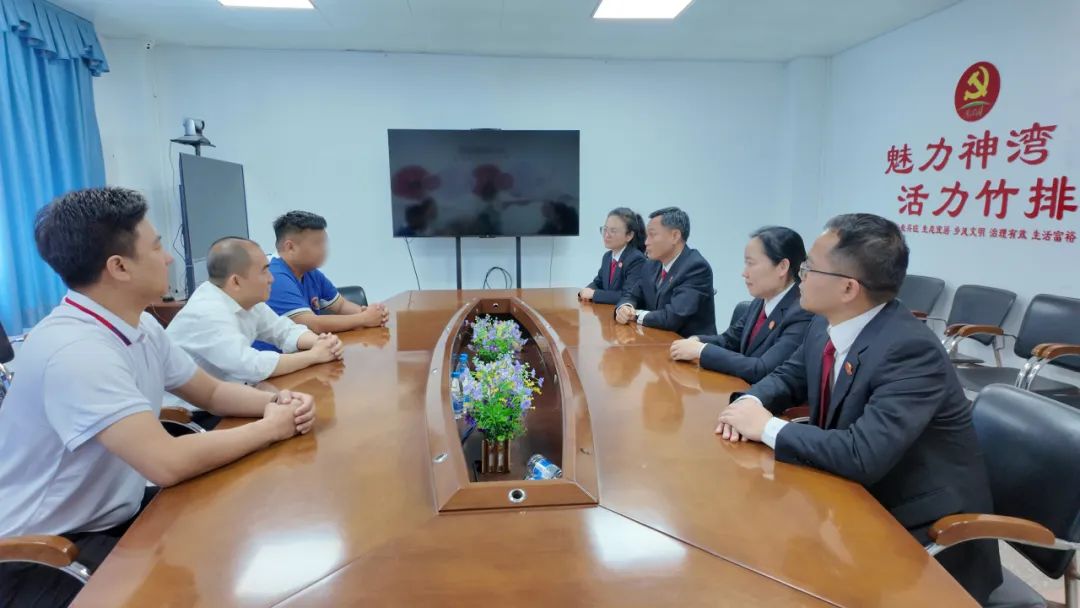
When environmental public-interest litigation faces enforcement difficulties, lack of supervision, or other issues, it becomes hard for the final judgment to fully realize its legal and social benefits. The execution of this case was impeded. In response, the legal representative of the engineering company, Li, voluntarily stated that the company had the capability and qualifications for river dredging and was willing to provide labor services as compensation for the monetary damages.
Compensating through labor services in place of financial payment represents an innovative legal breakthrough. Zhang Le, a judge at the Enforcement Bureau of GZMC, explained, "Although the defendant lacks executable assets, their genuine remorse and willingness to provide labor services as compensation demonstrate that that ecological compensation aims to restore the damaged environment, not to punish for punishment's sake."
After visiting and investigating the involved water area, the judge found that the "Sha Zai" sandbar had undergone natural ecological recovery and was stabilizing, meaning that further restoration was unnecessary. In fact, forced restoration could lead to secondary ecological damage.
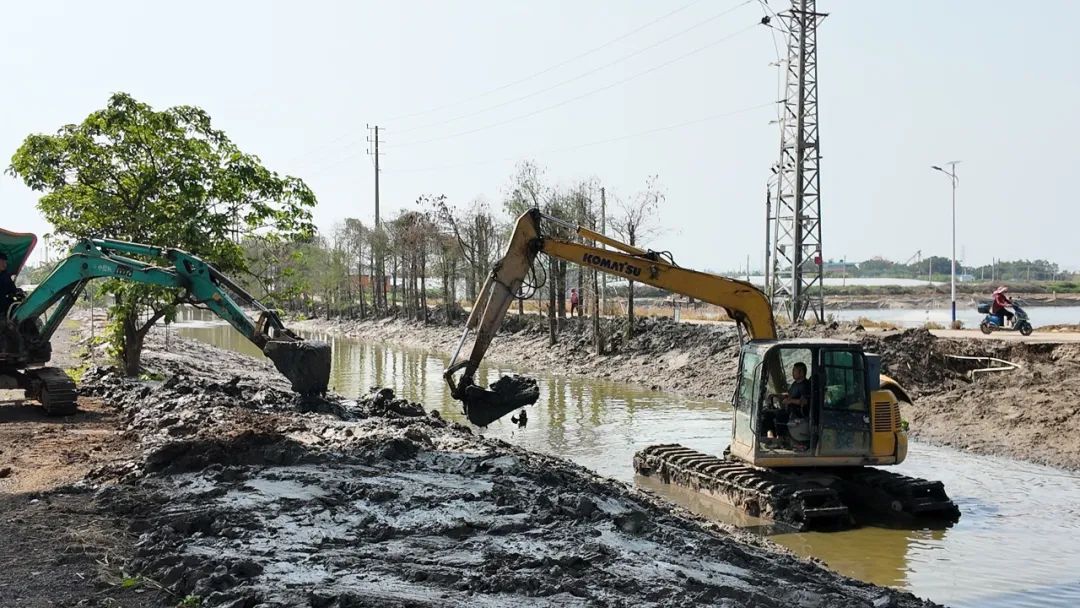
GZMC adopted the suggestion of the people's jurors for "remote restoration" during execution. The court proactively engaged with the Zhongshan People's Procuratorate, and after an assessment, it was decided that river dredging and tree planting along the riverbanks in Zhubai Village, Shenwan Town, would be carried out using the "Labor Compensation + Remote Restoration" approach, replacing the original property-based enforcement with an "evaluation and price offset" method.
Closed Loop of "Court Judgment + Prosecutorial Supervision + Administrative Regulation"
Zhubai Village in Shenwan Town is an agricultural village, where most residents are engaged in the farming of sea bass, white shrimp, and mudworms. The local irrigation canals, long undredged, and dikes lacking soil and water conservation measures, pose a significant risk to the aquaculture industry.
"We signed a remote restoration plan with the two defendant companies, confirming that 70% of the ecological damage compensation costs would be borne by the construction materials company, while the engineering company would bear 30% and compensate through dredging and landscaping work. The project is estimated to dredge more than 8,000 cubic meters of the river channel and plant 1,500 trees along the riverbank in Zhubai Village, with the total cost estimated at over RMB 560,000," said Zhang Le.
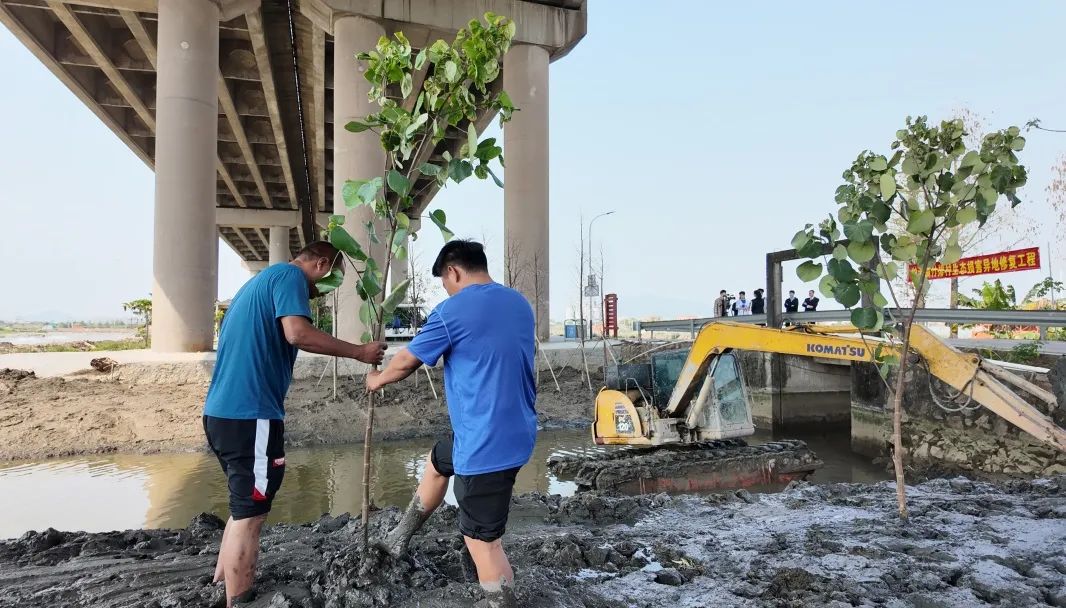
On August 15 last year, the Guangdong High People's Court, in conjunction with the Guangdong People's Procuratorate and eight other agencies, issued the Measures of Guangdong Province for the Transfer of Ecological Environmental Damage Restoration to Government Authorities for Supervision (hereinafter the "Measures"), which detailed specific rules for transferring ecological restoration supervision.
In accordance with the Measures, GZMC transferred the restoration supervision to the Zhongshan Water Affairs Bureau, with the prosecuting authority overseeing the entire process, thus forming a closed loop of "Court Judgment + Prosecutorial Supervision + Administrative Regulation."
Zhang Le explained that the Zhongshan Water Affairs Bureau supervised the restoration process from a technical perspective, ensuring that the tasks, completion deadlines, and acceptance criteria were met and that the restoration outcomes complied with ecological standards. This helped address the addressing the technical limitations of judicial institutions.
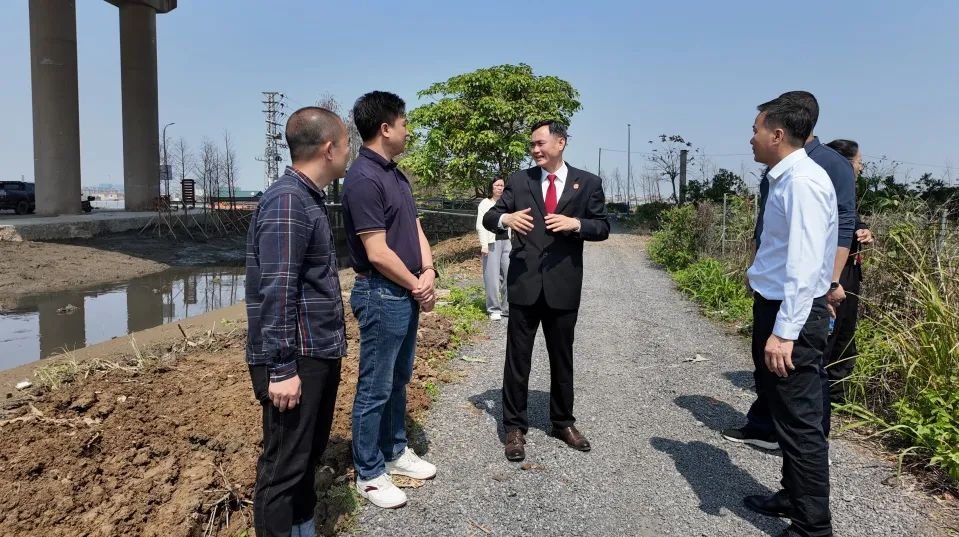
The river dredging and re-greening work has brought tangible environmental improvements and practical benefits to Zhubai Village. Li, the legal representative of the engineering company, stated that compensating through labor services instead of financial payment has alleviated their financial burden and ensured effective ecological restoration. "We will enhance future remediation efforts, operate strictly within the law, and prioritize protecting the ecological environment."
This case is the first of its kind in Guangdong Province following the implementation of the Measures, where a court has transferred ecological environment damage restoration to government authorities for supervision and prosecutorial oversight. It is also the first marine environmental civil public-interest lawsuit filed by the Guangdong Procuratorate after the revision of the Marine Environmental Protection Law. Chen Mingqiang, the Presiding Judge of the Maritime Administrative Tribunal of GZMC, said, "Through the government-court linkage mechanism, we have achieved 'one case closed, one area governed,' providing a replicable and scalable practice model to address the difficulties in enforcing environmental and ecological cases."

 粤公网安备44010502002715
粤公网安备44010502002715